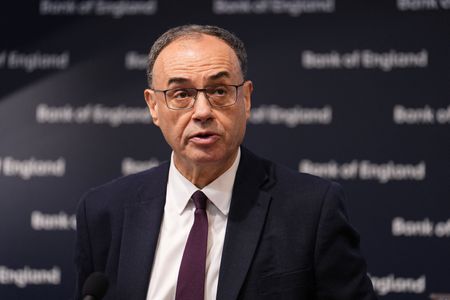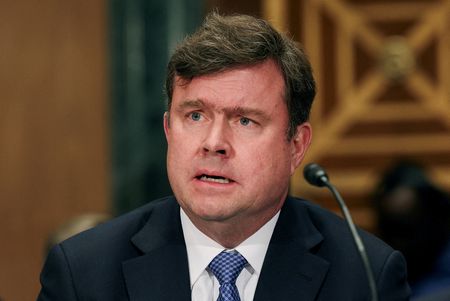By Marc Jones
LONDON (Reuters) -Modernising regulations, aligning rules around stablecoins and keeping tabs on ballooning debt and private credit markets are next year’s top priorities, global financial regulators said on Wednesday.
The Financial Stability Board, which coordinates financial rules for the Group of 20 economies (G20), set its work programme for 2026, a year when Donald Trump’s U.S. government, which is keen on easing regulations, will take over as G20 chair.
FSB head, Bank of England governor Andrew Bailey, said the watchdog remained “committed to closely scrutinising vulnerabilities in the (global financial) market” and ensuring the implementation of its recommendations.
A two-day plenary of FSB members in Saudi Arabia ahead of the weekend’s meeting of G20 leaders in South Africa looked at how a number of top countries have now started, or are planning to, revamp regulations after the years of toughening rules.
“The Plenary (meeting of FSB members) agreed that the FSB should examine these initiatives to determine where it can support alignment of approaches globally,” the FSB said.
Another priority for next year will be the boom in private credit markets.
FSB members discussed “their rapid growth, complexity, relative lack of transparency” and that growing interlinkages to the rest of the financial system “require careful monitoring”.
Its options for next year include further assessment of the possible vulnerabilities posed by the boom and improving data that regulators have access to.
The plenary also called for continued close monitoring of crypto-assets and stablecoins and their impact on the broader financial system.
Stablecoins “raise a number of vulnerabilities, including (bank) run risk and regulatory challenges associated with multi-jurisdiction issuers,” the FSB’s readout of its meeting said.
It discussed historically stretched asset price valuations, particularly AI-related stocks, and how highly leveraged “nonbank entities” have become increasingly important in government debt markets.
(Reporting by Marc JonesEditing by Alexandra Hudson)











